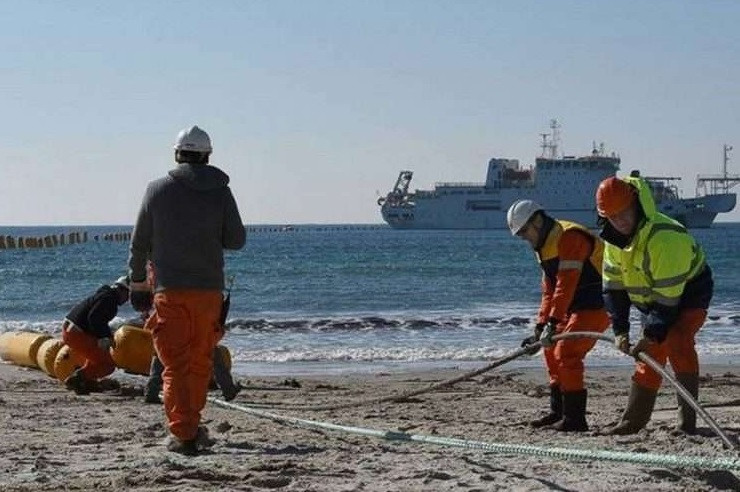Popular Reads
Top Results
Can't find what you're looking for?
View all search resultsPopular Reads
Top Results
Can't find what you're looking for?
View all search resultsRegulatory risks key barrier to investment in submarine cables
Regulatory clarity, as well as coordination and collaboration between state instutitions and between the government and operators, is essential to developing Indonesia into the digital hub it has the potential to be.
Change text size
Gift Premium Articles
to Anyone
F
or decades, submarine cables have been the backbone of the internet, the invisible lines carrying 98 percent of intercontinental data traffic. As an archipelagic nation, Indonesia depends on this physical infrastructure to ensure internet connectivity in all parts of the country.
As of 2022, Indonesia has 217 submarine cable segments and 42 underwater pipeline segments. However, these are not sufficient to provide connectivity to rural areas, in part due to the lack of geographically diverse deployment and basic protection measures. In addition, they lack redundancy, meaning that any loss of bandwidth from a broken cable cannot be rerouted to other cables.
Significant investments in submarine cables are indeed necessary. Geopolitical tensions have yielded Indonesia a timely opportunity to attract investors, as it has emerged as a favored destination among cable providers to build more routes away from the disruption-prone areas of the South China Sea and Hong Kong.
For example, stretching across 16,460 kilometers, the Bifrost cable system will be the first transpacific cable system connecting Indonesia, Singapore, the Philippines and the United States via the Java Sea. With installation expected to finish by 2024, the project is being developed by a consortium of telecommunication companies and tech giants consisting of Meta, Amazon, Telekomunikasi Indonesia International (Telin) and Keppel T&T.
Despite this progress, it is clear that significant challenges remain. While interest is growing among private investors to build cables, financial and regulatory risks remain key barriers to potential investment.
The issues are threefold.
First, in 2021, the government issued Fisheries and Marine Affairs Ministerial Decree (Kepmen) No. 14/2021 on submarine pipelines and cable systems. Given that submarine cables have been one of the most underregulated sectors for decades, the decree’s issuance indeed signaled the government’s commitment to better managing marine space and to providing investors with more legal clarity.



















